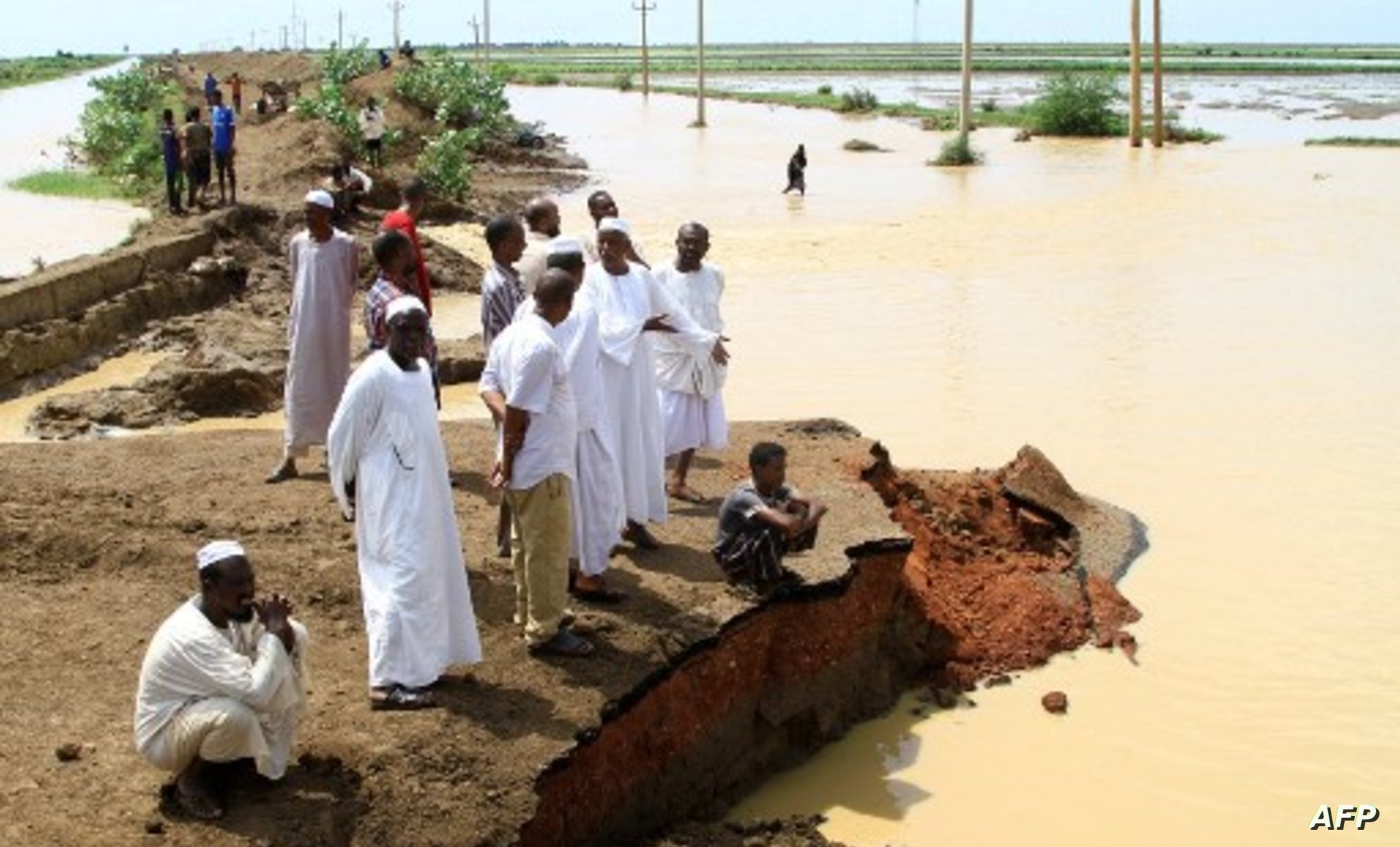
-
Published: 07 August 2023

Amid the continuing battles between the Sudanese army and the Rapid Support forces, the floods came to cause the destruction and damage to more than 400 houses in the northern state of Sudan.
Edited by |ANNA sam
Politic section - CJ journalist
Sudan conflict news section
Khartoum- August,7,2023
"Over the past two days, large parts of the localities of Dongola, Marwi, Deba, Al-qold, Al-barqiq and Halfa have been hit by rains and torrents, which led to some damage and losses in residential houses and farms,"Sudan news agency quoted, in a report.
She added that the initial reports found that "300 houses were completely and partially damaged in Merwe, 58 houses in Al-qold, 56 houses in Al-Dibba and 50 houses in Dongola".
This tragedy befell the Sudanese after almost four months of war between the Sudanese army led by Lieutenant General Abdel Fattah al-Burhan and the Rapid Support forces led by Mohammed Hamdan Daglo (hemedti), on April 15, concentrated in the capital and its suburbs and in the Darfur region in the west of the country and some southern areas.
This war resulted in the death of at least 3,900 people, and forced about four million people to leave their towns and homes, whether to other states untouched by violence or abroad.
Residents in the capital reported that "artillery and rocket shelling" continued on the central areas of Omdurman, west of the capital, north and south of Khartoum, AFP reported.
In Sudan, one of the poorest countries in the world even before the outbreak of the current conflict, humanitarian workers continue to demand access to combat zones in vain, saying that the authorities deny aid access to Customs and do not issue visas to aid workers.
International aid organizations have previously warned that the rainy season in Sudan, which began last June, could cause the spread of epidemics such as measles and cholera, especially in light of the cessation of immunization activities against diseases and the exit of 80 percent of medical facilities in the country out of Service.
The number of people suffering from "acute food insecurity" has doubled in Sudan, with the food and Agriculture Organization (FAO) reporting that "more than 20.3 million people, representing more than 42 percent of the country's population, suffer from high levels of acute food insecurity".
The UN described the situation in Sudan as "undoubtedly critical", especially with "approximately 6.3 million people in the emergency phase of acute hunger".
The most affected states, according to FAO, are those experiencing active conflict, including Khartoum, South and West Kordofan, central, east, south and West Darfur, where more than half of the population is facing acute hunger.
{source}<script async src="https://pagead2.googlesyndication.com/pagead/js/adsbygoogle.js?client=ca-pub-4474625449481215"
crossorigin="anonymous"></script>
<!-- moss test ad -->
<ins class="adsbygoogle"
style="display:block"
data-ad-client="ca-pub-4474625449481215"
data-ad-slot="6499882985"
data-ad-format="auto"
data-full-width-responsive="true"></ins>
<script>
(adsbygoogle = window.adsbygoogle || []).push({});
</script>{/source}
